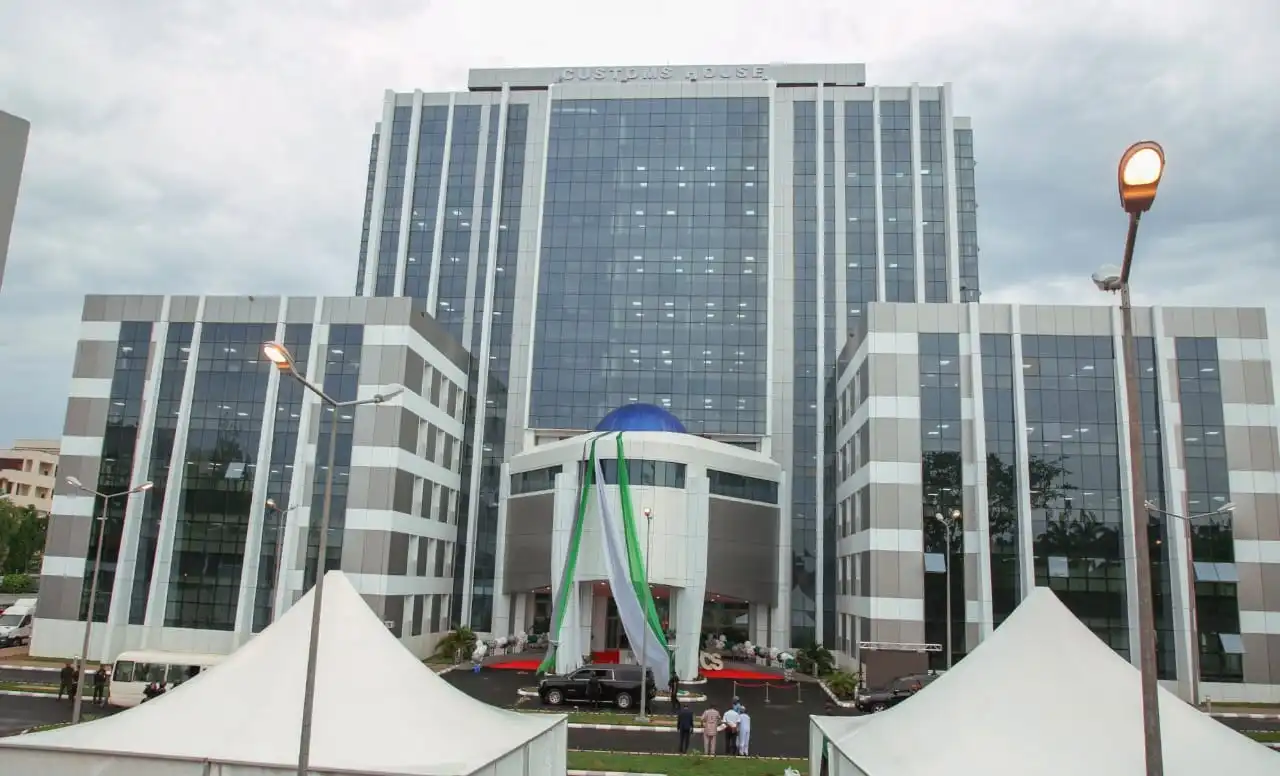Over the past two years of President Bola Ahmed Tinubu’s administration, Nigeria’s economy has endured a rollercoaster of reform efforts—many of which seem driven by guesswork rather than clear strategy. The resulting uncertainty has left government agencies swept up by a ‘reform fever,’ often compounding economic challenges rather than resolving them.
The Nigeria Customs Service (NCS) stands out among these agencies, with a string of recent initiatives that exemplify the unintended harms of poorly executed reforms. Notably, policies such as the introduction of the ‘B’odogwu’ initiative, a new four percent Free on Board (FOB) charge, and steeply increased licensing fees have all been rolled out almost simultaneously.
On paper, the NCS’s B’odogwu policy appears forward-thinking. The initiative centers around a homegrown digital platform, the Unified Customs Management Systems (UCMS), designed to digitally streamline customs processes including declaration processing, risk management, duty calculations, permit issuance, manifest handling, and cargo tracking—all within a unified system. However, the reality has been far from smooth. Following the launch of the UCMS, ports operations have come to a near standstill over the past month, with reports estimating that over 5,000 containers remain stuck and demurrage costs exceeding N2 trillion.
Industry sources cite persistent system outages on the digital platform as the major cause of the disruption, leaving manufacturers and merchants facing immense financial losses. Meanwhile, the simultaneous return of the four percent FOB charge has reportedly sent clearance costs soaring by over 200 percent, compounding the crisis.
Manufacturers fear not only the immediate financial impact but also the loss of perishable raw materials languishing in port while awaiting clearance. Key procedures, from platform log-ins to Form M registration, PAAR processing, duty payment, and exit clearance, have been impacted by repeated technical failures on the new system.
While the UCMS was intended to modernize and unify customs operations, its faltering implementation has effectively paralyzed cargo movement in seaports and bonded warehouses, grinding both imports and exports to a halt. When these issues will be fixed remains an open question, but the consequences for the sector and the broader economy are mounting.
As if these hurdles weren’t enough, NCS’s plan to hike licensing fees for clearing agents and freight forwarders poses an even larger threat to port operations. Proposed fees would soar to N10 million for new licenses—a more than twentyfold jump from the current rate. Renewals, which cost N251,000 previously, will reach N4 million, and importers and exporters must provide bank guarantees of N20 million instead of the present N350,000.
Similar astronomical increases are proposed across the board: bonded warehouse licenses would leap from N60,000 to N20 million; renewals from N60,000 to N10 million. Terminal operators would need to back their activities with N500 million bank bonds, up from N50 million. Ship chandlers, previously paying just N515 for a license, would now pay N2 million, with renewals at N1 million and bond requirements rising to N2 million.
Customs attempts to justify these fee hikes as necessary to reflect “prevailing economic realities” and to comply with the Nigerian Customs Service Act 2023, which mandates that all business transacted with Customs meet current licensing regulations.
However, a closer look at these proposed charges reveals their potential to trigger further economic distress. The sheer scale of the increases threatens to wipe out thousands of jobs, burden importers with crippling costs for essential raw materials and machinery, and accelerate the demise of small businesses.
Port activity is already declining. Saddling freight forwarders and clearing agents with heavier financial obligations may accelerate contractions throughout the industry, paving the way for dominance by larger, well-capitalized—often foreign—players and potential cartels.
Skyrocketing costs threaten to undermine trade facilitation and economic stability in the vital maritime sector, as importers face elevated handling fees, particularly at bonded warehouses, which are typically more expensive than ports. For ship chandlers, many of whom are already struggling, these new fees could be a death knell, encouraging ships visiting Nigeria to seek supplies elsewhere.
For years, Nigerian ports have been losing out to their West African counterparts in Lome, Abidjan, and Tema, which now attract the largest vessels and most transshipment business originally intended for Lagos. As Nigerian Ports Authority (NPA) Managing Director/CEO Abubakar Dantsoho recently acknowledged, “By every global indicator, Nigeria is the largest economy and most populous country in Africa, yet, today, Abidjan and Lome handle higher volumes than Lagos. This is the gap we must urgently close.”
It’s clear, however, that raising fees to unsustainable levels will not help Nigeria close this gap. In fact, these higher costs, combined with aging infrastructure and widespread bureaucracy, have already pushed many Nigerian importers and exporters to use ports in neighboring countries—resulting in significant losses to the NPA and NCS, and the proliferation of smuggling and illicit trade routes.
With the NCS set to enact these fee increases, many operators will look for creative ways to avoid the new taxes. Those forced to pay will pass extra costs on to consumers, raising the prices of goods and services even as inflation rages. In short, at a time when government authorities are striving to control inflation, NCS’s plan for exorbitant new fees could easily have the opposite effect—fueling more inflation and economic pain.
While the intention to modernize and standardize customs procedures is commendable, the timing and scale of these new charges are ill-advised. For the sake of Nigeria’s economic stability, it is crucial that NCS reassess its fee structures and postpone any drastic hikes. Avoiding an impending crisis now will better serve both the maritime sector and the broader economy.
Okeke is a practicing economist, business strategist, and sustainability expert. He can be reached at obioraokeke2000@yahoo.com or via SMS at 08033075697.










